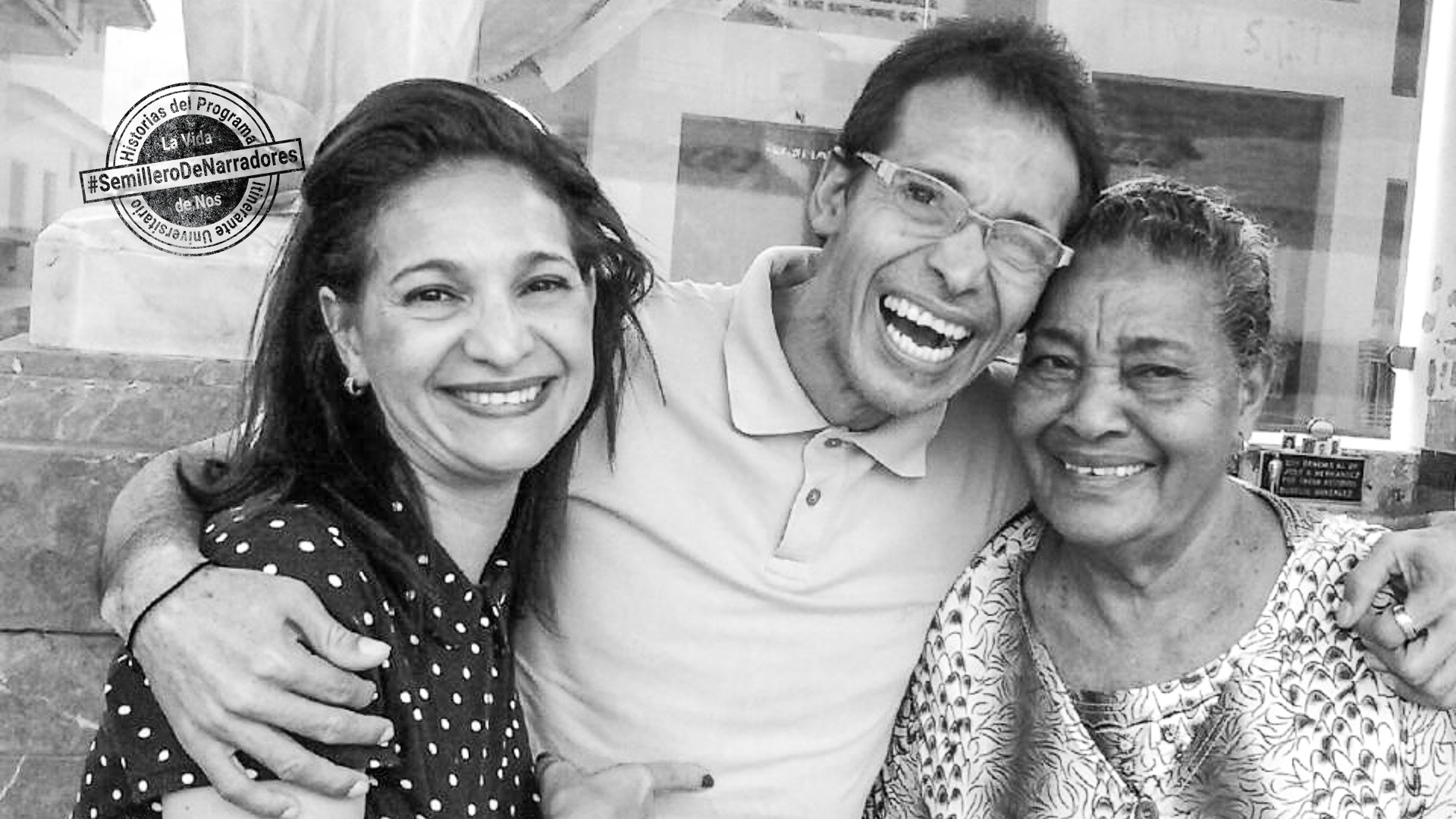

 At dawn on March 13, 2019, when Mérida was seven days into the first blackout that had stricken the entire nation, Professor Nilsa Gulfo, who is also a journalist, received a phone call from Maracaibo, Zulia, with the news that her brother Guillermo had just died. Saying goodbye to him turned into the first-hand painful obstacle course that she shares in this story.
At dawn on March 13, 2019, when Mérida was seven days into the first blackout that had stricken the entire nation, Professor Nilsa Gulfo, who is also a journalist, received a phone call from Maracaibo, Zulia, with the news that her brother Guillermo had just died. Saying goodbye to him turned into the first-hand painful obstacle course that she shares in this story.

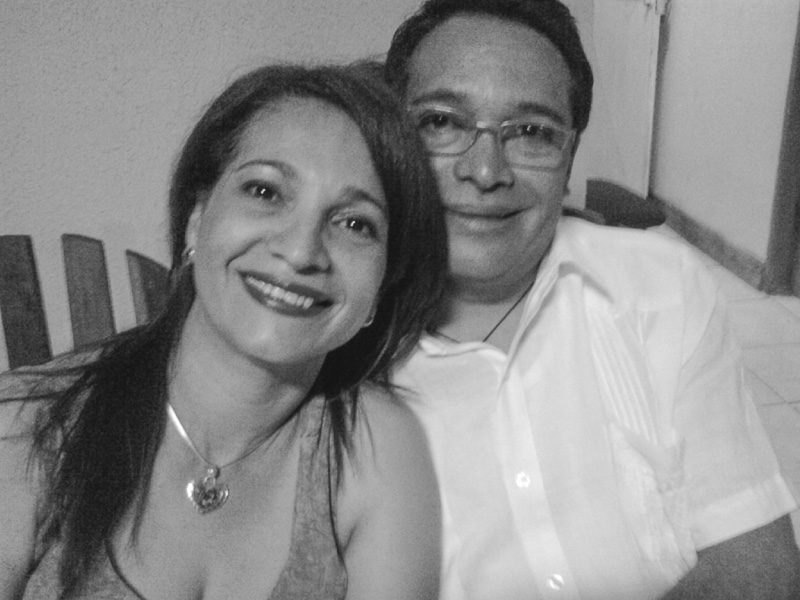 Photo Credit: Family Album
Photo Credit: Family Album
On March 7, 2019, we got unplugged from the world. In the midst of a nationwide blackout, the first of who knows how may power outages there were that year, our feeling was that time passed slowly, very slowly… too slowly. Days went by and we were remained isolated, not knowing exactly what was happening beyond our perimeter. One of my concerns was that my food could spoil.
Five days later, at dawn on March 13, still with no power, I set out to try to save some vegetables I had in the fridge. While at it, I got a call from Maracaibo, the city where I grew up. It was my sister Nelis, telling me that our brother Guillermo, who lived there, had just died.
I felt like I was caught in a nightmare. As my sister sobbed, trying to give me some details of what had happened, my mind went blank. They say it takes time for the mind to come to terms with loss.
Shocked by the news, I threw a few things in a backpack and left the house like I was going to war.
It turned out that, during the blackout, my brother fainted and was admitted to the University Hospital in Maracaibo, which was the only healthcare center in that city that had a power plant for patients who needed to be treated in an intensive care unit. Which was his case. While they were trying to operate on him because, apparently, he had a tumor in his head, he died. The truth of the matter is that the diagnosis was never verified because it all happened very quickly.
I knew that I would find it very hard to find transportation to Maracaibo amidst such a chaos. We were about 8 hours away and about 450 kilometers from Mérida. We had learned from neighbors that the city was deserted and that the pitch-black streets had become quite dangerous. The night before we had heard that the drugstore where a neighbor worked had been looted and that several shops had been destroyed. Not without a great deal of uncertainty, I headed to the terminal in Mérida, thanks to a neighbor who gave me a ride. When I got there, the empty place reminded me of your typical morning the first day of the year.
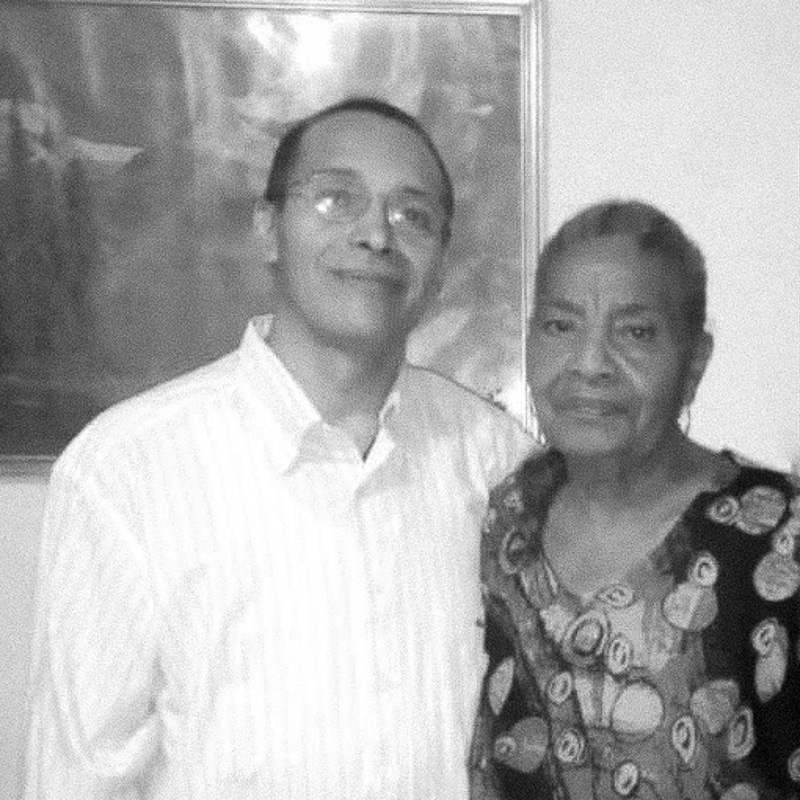
Contrary to what I had assumed, I was able to take a por puesto [TN] that would cross the paramo all the way to Valera, which is a small town in the neighboring state of Trujillo. The driver, who noticed that I needed to travel urgently, charged me in U.S. dollars. I was to meet my mother in Valera. She had been living there since the beginning of the year with my sister Cristina, who took her in because Maracaibo, where power cuts and the lack of running water are common, was no longer a city fit for an old woman. I would ride with them and my brother-in-law to Zulia in a car owned by the family.
Sitting in the back of the car, wrapped up in deep sadness, I began to reminisce about a lot of things. It was as though a film had started playing in my mind of so many moments that I shared with my family. With my brother. About my childhood in Maracaibo, that city that I left more than 20 years ago to pursue a career in journalism in Mérida but that I have never forgotten, for every December I go back there to spend the New Year holidays with my people. Last December 31st, just a few months ago, flashed through my mind. I could see my brother Guillermo dancing, laughing, and doing one of the things he loved most: eating.
I recalled our last face-to-face conversation. We were sitting on my mom’s bed. We talked about his problems, of her rebellious teenage daughter, and most of all, of how badly he wanted things to change for the better so his health could improve. At the end of our talk, he got up and spoke his trademark line: “But there is no other way but forward!.” And he left the room for the kitchen: Mom had called him because dinner was ready. I remembered him walking at a very slow pace, grabbing the cane he started using after his stroke six years ago.
I last spoke to Guillermo at the end of February. It was a quick conversation as he was being rushed to the hospital with a headache. He told me he didn’t feel like eating, but he promised me he would have a little bit of food. I guess he said that to reassure me when he noticed that I was insistent that he did. After he was treated, he was taken home. My siblings’ report the next week was that he was getting better, that he had a virus, and that they were going to great lengths to find the medicines that a patient like him, who had suffered a stroke and had had heart surgery, needed.
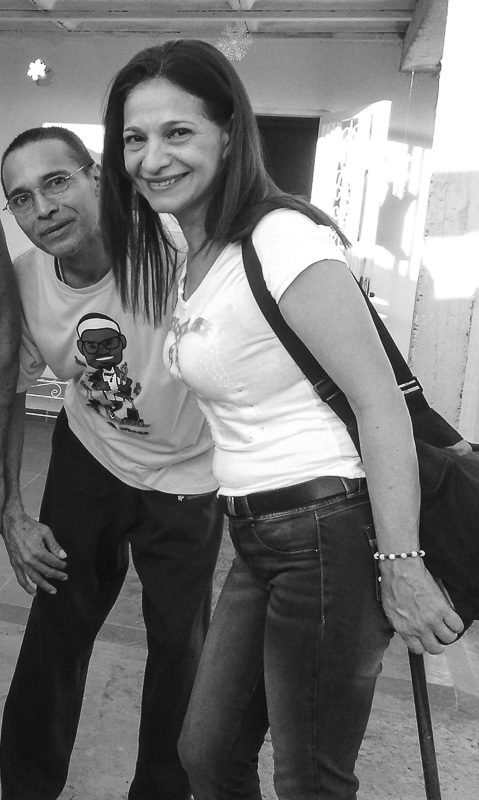
Communications were very poor in the days that followed, so I had no choice but to exchange a few text messages with my other siblings to know how Guillermo was doing. That was until March 7 at 5:00 p.m., when the blackout hit and we were left with no phone signal for several days.
People in Mérida went to the streets to try to purchase supplies in the few stores that were open. Many protested. On the third day, the looting began. Since the clashes were taking place very close to our house in downtown Mérida, my two children, my husband and I decided to go to my in-laws’. We felt safe in that outlying area of the city.
I arrived in Valera at around 2:30 in the afternoon. I felt the trip had taken too long. When we are in a hurry to get somewhere, obstacles appear to block the road, I thought to myself. The passenger terminal was as desolate as Mérida’s. My people were waiting for me there.
Rosina, my mother, was yet to learn the bad news. She had only been told that Guillermo had been hospitalized. But the moment I saw her, I knew that she was sad, very sad. Although, to be honest, sadness has not left her since my father passed away seven years ago.
We hugged for a while without uttering a word.
“Mihija, how are you?” she finally asked me.
I didn’t dare look at her. I was drenched in tears. I just held her tighter.
“I am OK,” I said, holding back tears.
We couldn’t break the news to her just like that because she had had a stroke in December 2017 and was hypertensive.
It was about 4:00 in the afternoon. We got in the car and headed to Maracaibo. We crossed the Lara-Zulia, that huge and unfinished highway of over 280 kilometers that starts in Barquisimeto and ends at the bridge over Lake Maracaibo. The road was lonely and dark. At times, I closed my eyes, but it made no difference if I had them open or closed because in the back, where I was riding with my mom and my other sister, there was little to see. Night had already fallen.
With barely an hour to arrive in Maracaibo, we received a text message informing us that the funeral home where my brother’s services were being held was closing at 9:00 p.m. It was almost 8:00 p.m. and there was still a long way to go. That made us change our plan to take her home and break the bad news there. We had no time now. We crossed the bridge over the lake in overpowering silence, knowing that we were going straight to the funeral.
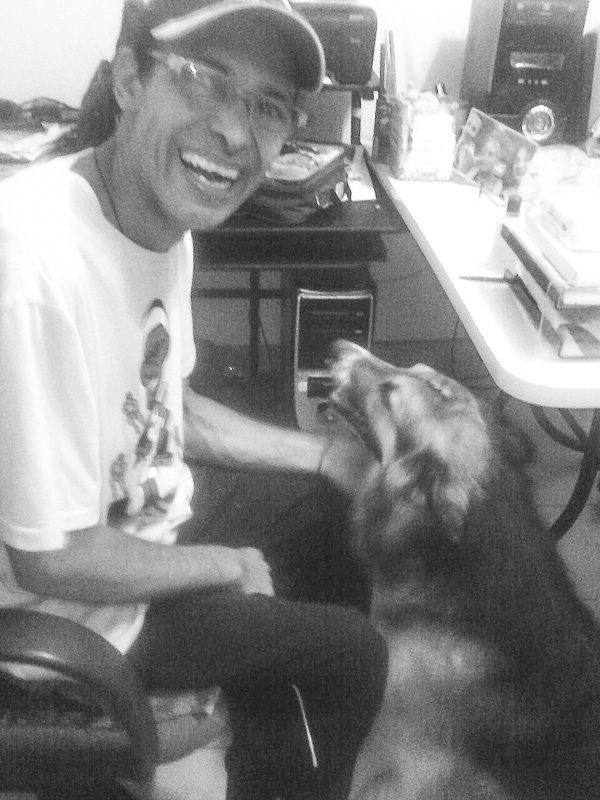
My mom was holding my hand tight. As if she knew.
The Circunvalación 1 highway welcomes those arriving in the city through the Rafael Urdaneta Bridge. We had covered a few kilometers when my brother-in-law stopped the car by a corner. He turned his head back and spoke softly to my mother.
“Mrs. Rosina…”
He made a pause.
“We have just gotten word that Guillermo passed away.”
My mom, who had trouble hearing, looked at me, puzzled.
“What did he say?” she asked me.
“Ma, he said that Guillermo has died.”
“I knew it” she replied, and covered her face with her hands.
And she started crying.
And she didn’t stop.
We got to the funeral home. It was so small, so tiny. But we had been lucky, so to speak, for it was one of the few places that had electric power. Maybe it was one of the perks of its proximity to the University Hospital.
In the middle of the only chapel of the funeral home, there was my brother Guillermo’s coffin. I looked around. I saw his wife holding her two daughters. Luis, Nelis, and Noraida , my siblings, had already met us at the door.
My mother arrived in the chapel. It had been a long time since I had seen her walk in such a hurry: it was 8:50 at night and they were about to close.
She stood there, crying quietly, until we were told that it was time for us to leave.
And quietly we went home.
A few blocks away, on Avenida La Limpia, there was rioting and looting.
The burial was on the following day. It was a quick service because Maracaibo it is not a good place to be outdoors at 1:00 in the afternoon. Not even when the one being buried is a loved one. The sun was scorching, blazing, blistering. At times, a little breeze would blow, and it felt like a balm. A man we did not know began to pray the Rosary. No one asked him to, but he did it anyway. I would later realize that it was his business. When he finished, he stretched out his hand and said, “Help me with whatever you can.”
After the service, we left.
How things can change so quickly? How is it that one day you are in Mérida, trying to save the few vegetables you have left after six days without power, and the next day you are on your way to a ghostly terminal? Why saying goodbye to my brother had to be such a painful obstacle course?
It was absurdity after absurdity after absurdity, and then more. On Sunday, March 17, as I was sitting in the minibus that would take me back to Mérida, my mind went over all I had experienced in the last few days. I was tired. I was exhausted.
Behind me, two women were talking about how catastrophic the blackout had been for them. I had the impression that they were competing to see which one of them had lost the most. One told the other that it had been far too difficult for her to travel from Maracaibo to Mérida to find her son.
“I mean… Who would even think of traveling in the thick of a blackout?”
“I would”, I answered in my mind, and plunged back into my memories.
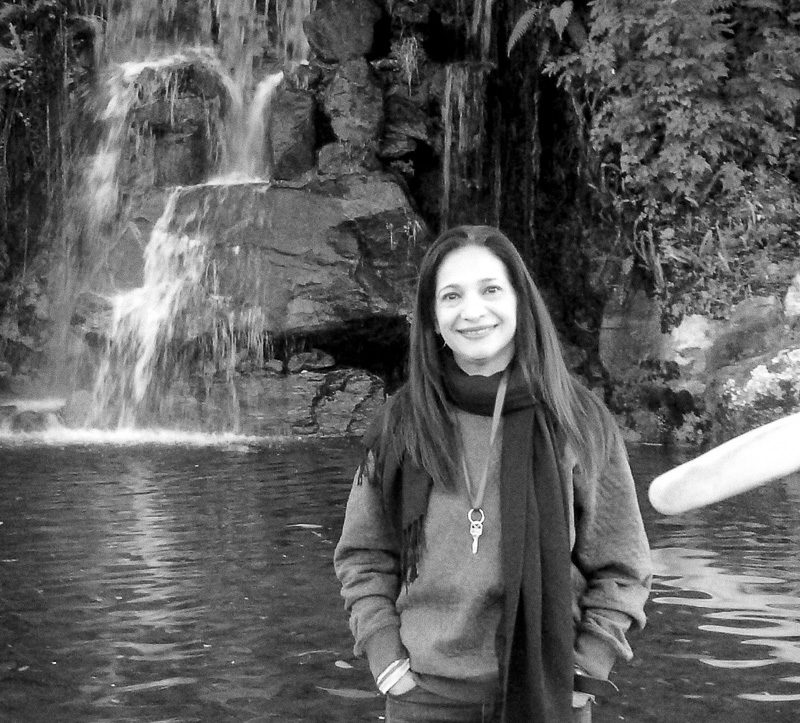
Translation: Yazmine Livinalli
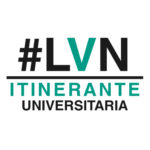 This story was produced within the framework of the La Vida de Nos Itinerante Universitaria program,
This story was produced within the framework of the La Vida de Nos Itinerante Universitaria program,  which offers workshops on real-life storytelling for university students and professors from 16 Social Communication schools in seven Venezuelan states.
which offers workshops on real-life storytelling for university students and professors from 16 Social Communication schools in seven Venezuelan states.

1696 readings
I am a journalist from the University of Zulia. I have a master’s degree in human resources and one in social and natural hazards. I am currently a professor of journalism at the University of the Andes in Mérida and at the Cecilio Acosta Catholic University. #SemilleroDeNarradores [Seedbed of Storytellers].
Un Comentario sobre;